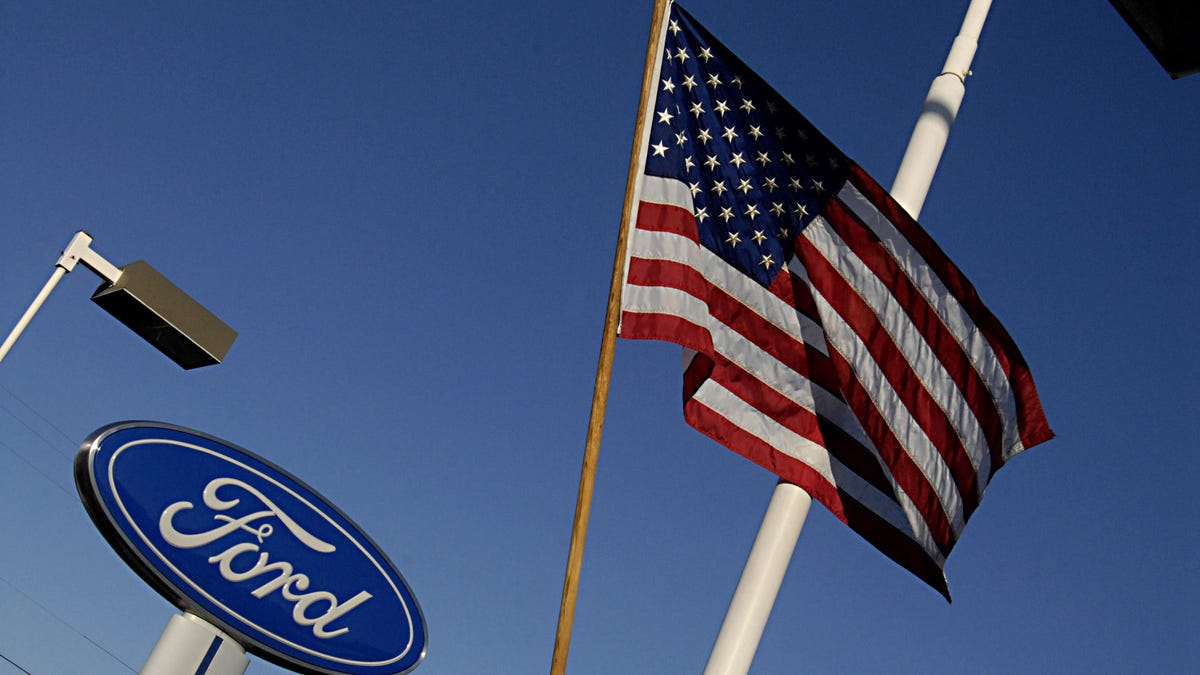Department of Justice to investigate BMW, Ford, Honda and Volkswagen
The four automakers agreed to voluntary emissions regulations with California and the DOJ wants to learn if they violated antitrust laws.

More drama surrounding US vehicle fuel economy and emissions is brewing.
The standoff over the Trump administration's proposed fuel economy and emissions standards rollback and California's vow to fight any changes just became far more tense.
The Department of Justice has launched an antitrust investigation into BMW, Ford , Honda and Volkswagen over their agreement to honor voluntary emissions regulations with the state of California, The Wall Street Journal reports. The deal, announced back in July, was seen as a direct rebuke to the Trump administration's plans to freeze fuel economy and emissions regulations at 2020 levels.
The DOJ probe seeks to learn if the four automakers broke federal antitrust laws by agreeing with one another to follow emissions standards outside of the proposed regulations from the Trump administration. The newspaper cited sources close to the matter, but Honda confirmed the DOJ has, indeed, been in contact with the automaker.
"Honda will work cooperatively with the Department of Justice with regard to the recent emissions agreement reached between the State of California and various automotive manufacturers, including Honda," the company said in a statement.
A Ford statement on the investigation said, "We have received a letter from the Department of Justice and will cooperate with respect to any inquiry," as relayed in a tweet by auto industry reporter Jeff Gilbert.
Ford statement on Justice department investigation to see if they, along with Honda, BMW and VW violated anti-trust rules by agreeing to fuel economy deal with California “We have received a letter from the Department of Justice and will cooperate with respect to any inquiry.”
— Jeff Gilbert (@jefferygilbert) September 6, 2019
Ford did not immediately return our request for comment to confirm the statement. Similarly, Roadshow was unable to reach BMW in a timely manner. A Volkswagen representative told Roadshow, "We are in regular contact with US authorities on a number of matters, but do not comment on specific private communications we may or may not receive."
The four automakers and the California Air Resources Board looked to provide certainty despite whatever regulations the Trump administration presents in the future. This week, a report claimed the administration will seek to revoke the state's waiver process as part of revised fuel economy and emissions regulations. Without it, California will not be able to set its own greenhouse gas regulations. It sets the stage for a bitter battle, with automakers caught in the cross-fire.
CARB did not immediately respond to a request for comment on the unfolding situation.
The Journal reports that the DOJ is operating on its own accord with no direction from the White House on the matter, and added each of the four automakers received a letter alerting them to the investigation. So far, the DOJ hasn't reached any conclusions, according to the report. The apparent crux of the DOJ's concerns are worries the four automakers conspired with one another and not with regulators to compile the agreement. In the end, it may be viewed as an agreement to not compete with one another. The newspaper's sources said DOJ staffers are also worried such an agreement will limit automobiles for sale "artificially" and limit competition.
The agreement declared each automaker will improve fuel economy to nearly 50 miles per gallon by 2026 -- a slightly less aggressive goal than the current regulations put in place under the Obama administration. Until the Trump administration reveals official figures, automakers must ensure cars return 54.5 mpg by 2025. Proposed changes from the Trump administration will see fuel economy and emissions levels frozen at 2020 levels with a goal to create one national fuel economy standard. In the process, it will diminish California's influence on regulations.
An August report claimed Mercedes-Benz and one other major automaker were nearing an announcement to also join the voluntary California pact, but no other automakers were named in the preliminary investigation.

